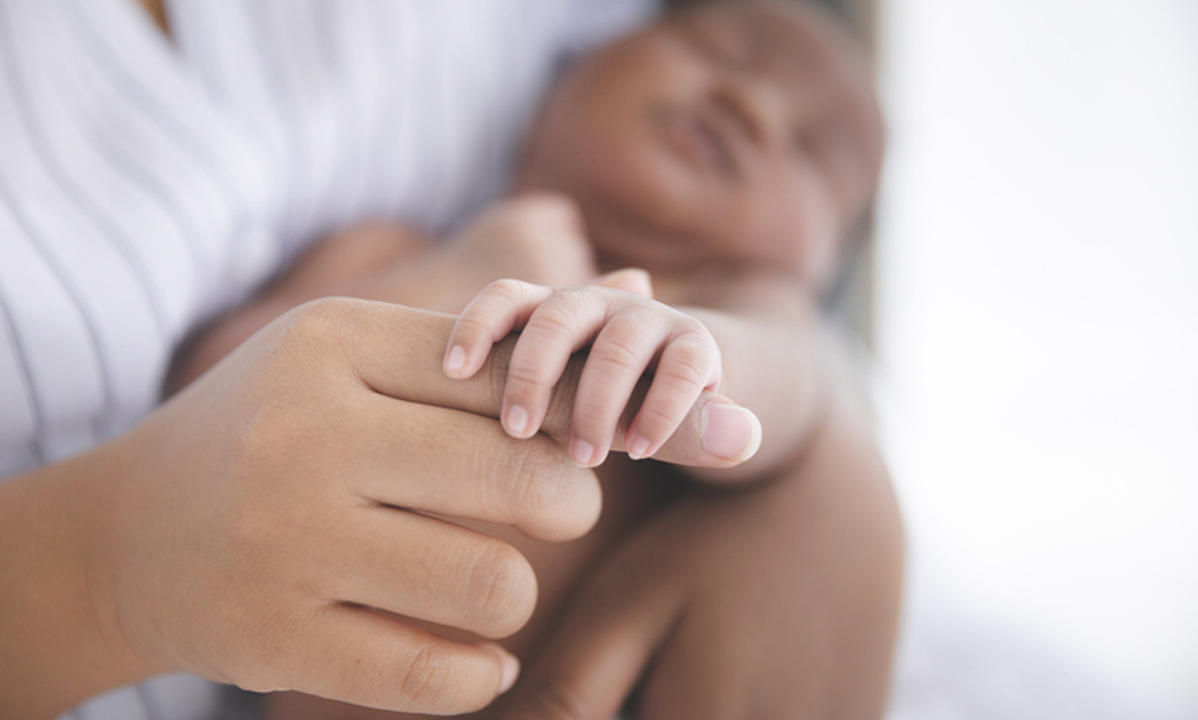American Parents Deserve Better Family-Friendly Policies
Every family should have access to high-quality maternal health care, paid parental leave and affordable child care.

Join our zero2eight Substack community for more discussion about the latest news in early care and education. Sign up now.
I recently welcomed my second child into the world, and while this is a joyful moment for my family, my experience during pregnancy and childbirth was deeply sobering. Along the way, I was intimately aware of the risks I faced.
When I delivered my first child, I was diagnosed with thrombocytopenia, a condition that caused excessive bleeding and made an epidural too dangerous. After delivery, stress triggered both preeclampsia and shingles. My daughter spent her first week in the NICU while my family prayed over us both, and I remained on bed rest.
This time, I had a health care team that was prepared to support me through my pregnancy. But too many women don’t have access to that level of care or planning. And a healthy delivery is just the beginning. For many families, the challenges can mount up quickly: a lack of paid leave, unaffordable child care and limited postpartum support. These aren’t personal failings — they’re systemic gaps. And they’re among the reasons many young people are not having children.
Recently, I’ve heard a lot of ideas about how to encourage people to have more children, including suggestions from the White House, such as motherhood medals or one-time baby bonuses. I’ve seen these issues from every angle as a mother, an advocate and as the executive director of the National Association for Family Child Care (NAFCC). The answer is clear to me. To build a country where families want to — and are able to — raise children, we must start with three core policies: improving maternal health care, expanding paid family leave and making child care more accessible and affordable.
Improve Maternal Health
The U.S. has one of the worst rates for maternal mortality among wealthy countries. The numbers are even more devastating for Black women, who are nearly three times more likely to die from pregnancy-related causes than white women, regardless of education or income.
As a Black woman with a college education, I face a pregnancy-related mortality rate that is five times higher than that of my white counterparts. This time around, I’m fortunate to have a Black OB-GYN who understands these disparities, but many women don’t have access to culturally competent care or even basic prenatal services. Over 2.2 million women live in “maternity care deserts,” with another 4.8 million in areas with limited access to maternity care.
Solutions exist. Expanding maternal screening and prenatal care, especially in rural communities, and ensuring pregnant women have access to health insurance, including Medicaid, and community-based doulas are meaningful steps toward safer outcomes for all mothers. Additionally, bills like the Black Maternal Health Momnibus Act, introduced in 2019 and 2021, seek to make sure investments are targeted where they are needed most. But there’s significantly more work to be done.
Increase Access to Paid Leave
After my newborn and I made it home in good health, I, like most other parents of young children, had to contend with the tradeoff between staying at home or maintaining employment. Unlike most other developed countries, the U.S. does not have a federal paid parental leave policy. My husband and I are fortunate enough to have paid parental leave plans from our employers, but nearly three out of four private-sector workers in the U.S. do not, according to the U.S. Bureau of Labor Statistics. This forces many parents to return to work before they’re ready or to leave their jobs entirely.
As of 2024, thirteen states and Washington, D.C., have enacted paid family and medical leave programs. It’s time to scale these solutions nationally. No parent should have to choose between a paycheck and bonding with their newborn.
Expand Access to Affordable, High-Quality Child Care
To add to the challenge of welcoming a new baby into the family, once parents do return to work, they face yet another crisis: rising child care costs. For many families, child care payments are higher than the price of housing and often more expensive than public college tuition. And yet, the median wage for early educators nationally is $13.07 per hour, according to the Early Childhood Workforce Index published by the Center for the Study of Child Care Employment.
The math doesn’t work. The cost of sustaining a quality child care system exceeds what families can pay, but still leaves educators underpaid. The solution is publicly funded, universally available child care — something states like New Mexico, Vermont and Michigan are modeling well.
As I take this special time to bond with my new baby and adjust to being a mother of two, my greatest wish is for better family-friendly policies for all American families. Specifically, policies that improve maternal health care and increase access to paid leave and affordable, high-quality child care. If we truly want to encourage and support families in raising children, we must stop asking them to do it alone. These babies will grow up to be our leaders, caregivers and changemakers. The least we can do is ensure they, and their parents, have the support they need to thrive.
Get stories like these delivered straight to your inbox. Sign up for The 74 Newsletter


;)
